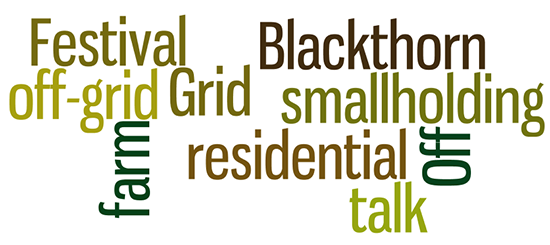Blackthorn Farm (still very off-grid!) who spoke about how their endeavour was only possible due to the support of their local community. Mark and his family bought some land near Bridport hoping to farm, but it seemed that the farmer was very keen to sell them all the livestock, too, so the day after buying the land they became farmers with sheep, cattle, fruit, veg and more besides. That’s pretty intense for two shiatsu practitioners who’d never farmed before. After a short while they realised they really needed to live onsite to tend to the animals, but getting planning was going to be arduous and probably unlikely. So instead they built a house in a friend’s barn, dismantled it, and together with friends, reassembled it in 4 day weekend of a bank holiday. This allowed them to skip through a planning loophole and puts them in the position of asking forgiveness rather than permission.
Whilst this may sound sneaky, it’s deeply pragmatic. Planning law demands that if you are allowed to have a dwelling there, you must first demonstrate that you can make a profit living on the land. But if you’re not on the land and able to give it as much attention, it is far harder to make it profitable. So policy uses this catch-22 (unintentionally or otherwise) to minimise the development of agricultural dwellings, which in turn inhibits the growth of sustainable farming, and therefore jeopardises UK food sovereignty and supply resilience – both of which feature as goals in government policy. And so it is we chase our tails wondering why we don’t get anywhere… sigh.
Mark is a member of the Peasant Evolution members cooperative (which also includes Trill Farm, run by the founder os Neals’ Yard, and food campaigner Jyoti Fernandes’ Fivepenny Farm). He was clear that without their help, and without the help of other neighbours and farmers they would have had to stop long ago.
People like helping each other, especially when they’ve been there too, both knowing the hardships one endures and sharing the same passions for sensible food production and wholesome, intelligent, civilised living.
For more planning advice see Chapter 7 and the Ecological Land Coop.

